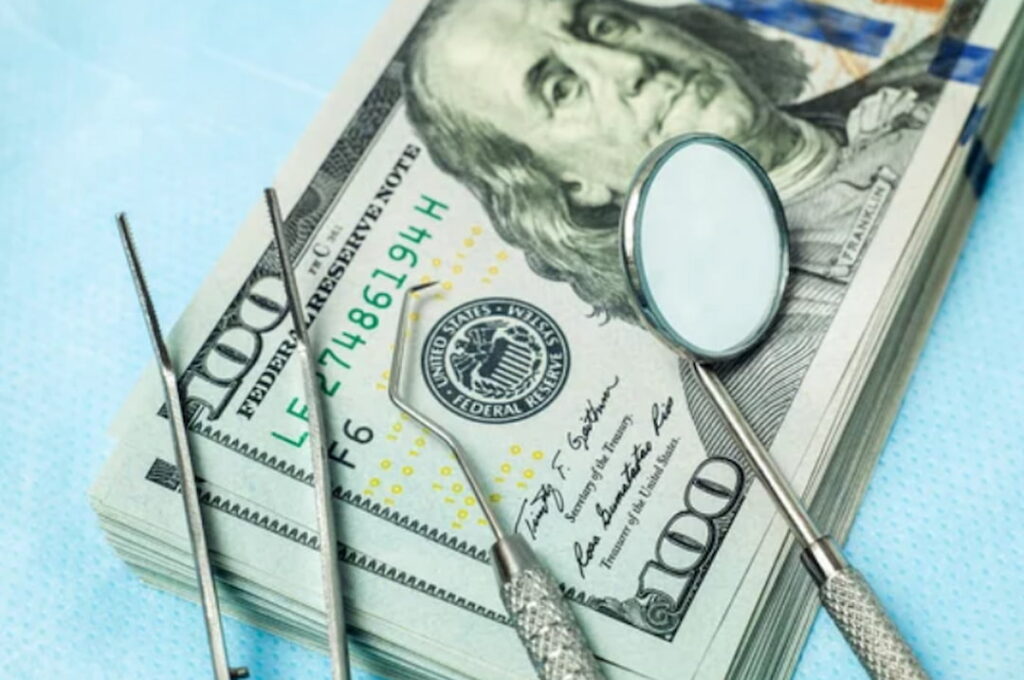
Full arch restorations are used when an entire row of teeth (either upper or lower) needs to be replaced. It is a lot more cost-effective than simply putting in individual implants. However, this kind of restoration isn’t for everyone.
Since a full arch restoration replaces a whole row of teeth, any remaining teeth in that row will have to be extracted before performing the surgery. If you still have a lot of viable teeth in the area, it may be better to do normal implants instead of a full arch.
Keep reading to learn about the best time to do a full arch restoration, as well as what to expect cost-wise and the benefits.
What is the Purpose of a Full Arch Restoration?
A full arch restoration is a way to replace the teeth in the mouth when there has been a lot of dental loss for a patient. This is done as a last resort as it requires extracting all of the other teeth in the area.
However, sometimes other forms of teeth replacement don’t work for patients, and there is no other choice.
Usually, this dental procedure involves using a prosthetic to imitate a mouth full of teeth. However, it isn’t just for looks, it can provide a lot of other benefits as well.
This is an option often chosen by people already wearing dentures, as they are more secure and provide a more natural smile. Implants also tend to last a lot longer.

What Are the Benefits of Full Arch Restorations?
When you get a full arch restoration, it is about more than just looks. While it is nice to have all your teeth back and have them look natural, it does a lot more than that.
We may not realize how important teeth are in our daily lives. Not only do they help us feel more confident, but we depend on them to chew and to speak. Not to mention, the implants, due to their weight, can help prevent any deterioration of the jaw bone that might have continued from the prolonged denture or dental bridge use.
Keeping your jaw from deteriorating further can help to maintain the shape and structure of your face and jaw.
Even compared to dentures, using dental implants feels a lot more natural, like real teeth, which makes it easier to chew and speak.
What Are the Downsides to Full Arch Restorations?
Full arch restorations are costly, especially if your insurance doesn’t cover a lot of the price. Depending on your personal needs, there may also be multiple surgeries.
Not only does this increase your cost, but your recovery period, and time you need off from work also go up.
The whole procedure takes a fair amount of time as well. Between the surgery, the follow-ups to put in the real implants, and the initial appointments where you and the dentist go over everything to make sure that it looks good and you are a candidate, you may feel like your time is focused on your teeth for several months.

How Long Does it Take to Do a Full Arch Restoration?
Full arch restorations can be done relatively quickly. Usually, you are ready to go after about 3 or 4 sessions with your dentist.
However, there are sometimes other surgeries, such as bone grafting, that have to be done before the actual restoration can take place.
How Long Do Full Arch Implants Last?
Full arch implants can last a long time. The average is anywhere between 5 to 15 years, but if they are taken care of right, they can last for decades. However, the surgery to give your implants a place to stay will last forever.
This means that while you might have to go and get new implants every decade or so, you won’t have to undergo surgery again unless something goes wrong. Instead, they can just remove and replace the implants as needed.
How long your implants last depends on a few factors, such as:
- Diet
- Oral hygiene
- Smoking habits

How Long Does it Take to Heal From Full Arch Dental Implants?
Despite it being a lot more teeth, the recovery time for a full arch is pretty similar to that of any other implant surgery. This usually takes at least 10 to 15 weeks.
During the first week, you will likely notice swelling, sensitivity, and a little pain, but that should start to quickly fade as your gums and jaw begin to heal.
Implants usually have around a 98% success rate, so once you undergo the surgery, you have a good chance of having the implants work.
Are Full Arch Dental Implants Painful?
After a full arch dental implant, there is a lot of trauma to the gum and jaw. During the surgery, all of this area is numbed. After the numbing agent wears off though, the pain may start creeping in.
A lot of the time, it can be managed with simple over-the-counter medication. However, there are some times when the pain can be worse. In general, the pain will last for around 10 days.
Also, although there is a fair amount of pain and swelling, it is usually less than having multiple implants done at once.
How Much Does A Full Arch Restoration Cost?
Individually, implants can cost anywhere between $3,000 and $5,000. For a full arch, you can expect to pay anywhere between $15,000 and $30,000. This is for one arch.
However, this cost covers more than just the implants. For this price, the whole procedure will be covered.
This includes:
- The surgery
- Anesthetic
- Follow-ups
- Any possible bone grafts

There are a lot of factors that change the cost as well. Not everyone is the same, and neither are their teeth.
Some factors that can influence your price are:
- The material you choose. There are a few options (resin, ceramic, and porcelain) when it comes to choosing your new implants.
- The teeth that are being replaced. Some teeth aren’t as easy to replace as others. Depending on whether the teeth you are replacing are the visible ones or not (or a combination) you may have to pay more money to have them look more natural.
- If a bone graft is needed. Bone grafts are required to attach implants to your jaw if your bone density is low. There are different kinds of bone grafts, which also can affect your prices.
- If you get a general anesthetic. Most of the time, it is beneficial to get a general anesthetic, so you don’t have to worry about any pain and can just sleep while the dentist works. However, an anesthetic does add quite a bit to the price. For a more cost-effective option, there are also sedatives.
Though the initial cost can be high, it is important to think about any implants, especially full arches, as an investment. In the long run, they are a lot more cost-effective. They also last a long time.
There is a 99% survival rate after 10 and a 95% survival rate after 20 years. While you might have to get new teeth put in every decade or so, depending on how you treat them, that cost is a lot less than the initial implant cost.

Conclusion
Although a full arch restoration may sound pricey initially, in the long run, it is one of the cheaper options. It allows you to replace all of your teeth at once and provides a lot of benefits over non-surgical methods like dentures.
If you have a healthy jaw bone density, you may even be able to get the surgery for a lot cheaper than expected, and with far fewer operations. However, no matter what is needed, it is worth it, in the long run, to maintain your facial shape, have more natural teeth in both looks and abilities, and feel more confident.

